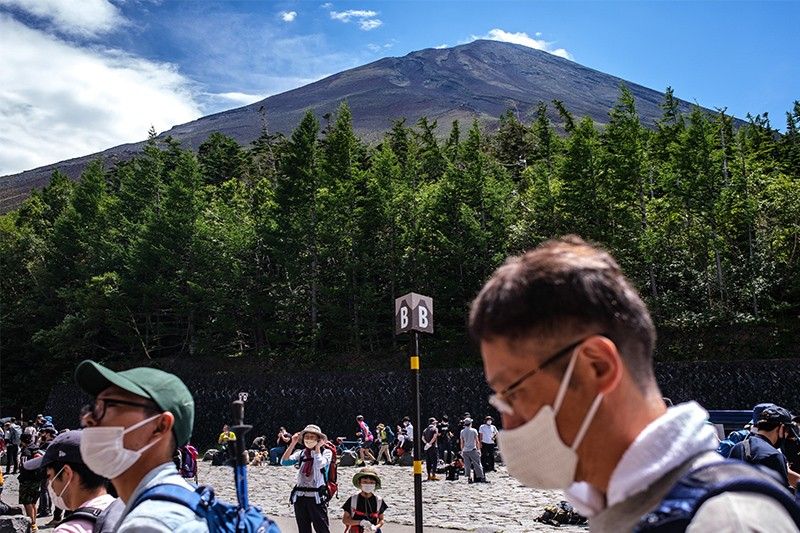Mount Fuji crowds shrink after Japan brings in overtourism measures

TOKYO, Japan — Fewer climbers tackled Mount Fuji during this year's hiking season, preliminary figures show, after Japanese authorities introduced an entry fee and a daily cap on numbers to fight overtourism.
Online reservations were also brought in this year by officials concerned about safety and environmental damage on the country's highest mountain.
The number of climbers fell by 14 percent between early July — when the volcano's hiking trails opened for the summer — and early September, according to the environment ministry.
To calculate its preliminary figures, the ministry used infrared devices installed on the four trails.
It comes despite Japan welcoming a record influx of foreign visitors, with nearly 18 million tourists entering the country in the first half of 2024.
Officials raised the alarm last year about overtourism at the once-peaceful pilgrimage site, with the local governor of Yamanashi region warning that "Mount Fuji is screaming."
This summer the environment ministry counted around 178,000 climbers, compared to more than 200,000 the previous year and before the pandemic.
Related: Sick of tourists, Japan town blocks view of Mt Fuji
Gates to the trails were closed on Tuesday, marking the end of the hiking season. The preliminary data runs to September 4 and will be updated on a later date, a ministry official said.
The mountain is covered in snow most of the year but during the summer many trudge through the night to see the sunrise from the 12,388-foot summit.
This year, an entry fee of 2,000 yen (almost P800) plus an optional donation was charged on the popular Yoshida Trail, with numbers capped at 4,000 per day. The three other trails remained free.
Concern had been raised that some climbers were sleeping on the trail or starting fires for heat, while others became sick or injured after trying to reach the summit without breaks.
Mount Fuji is about two hours from central Tokyo by train and can be seen for miles around.
The majestic mountain is a symbol of Japan that has been immortalised in countless artworks, including Hokusai's "Great Wave."
RELATED: Japan to introduce online booking for Mount Fuji trail





















